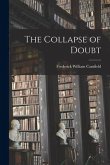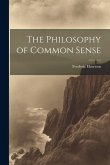Ever since the start of the twentieth century, and especially toward the rise and end of World War II, some Western intellectuals started to recognize that something was radically wrong with modern Western civilization and culture, that these appeared to be in their twilight years. Starting in the 1930s, these thinkers began to diagnose the problem in some detail. In doing so, in one way or another, they tended to arrive at the same conclusion: outside of the intellectual order of what, even today, Westerners call 'science' or 'physical science, ' the West had largely lost its conviction that any truth or wisdom existed. Outside this narrow intellectual sphere, most Westerners had largely turned into skeptics and sophists. While many contemporary Westerners tend to view the West's present decline to be due to a loss of faith, these intellectuals disagreed. They attributed this decay to a loss of logos, of reason, especially of wisdom and prudence in touch with sense reality and common sense. Belief has not been something in decline in the modern West, or world in general. It has existed, is, everywhere. Even 'science' is supposed to be simply one more 'belief system, ' or 'feeling, ' supposedly superior to other forms of belief or feeling because it is an 'Enlightened, ' not a backward, 'religious belief system' or 'feeling.' The problem with the modern world is not that we believe in nothing. It is that we believe in everything except religion in touch with commonsense reality. We have lost our understanding of the range of reason and have largely turned into skeptics and sophists: secularized fideists. Anyone familiar with Western intellectual history knows: (1) metaphysical principles and the moral and intellectual virtue of prudence found civilizations and that, based upon these principles, civilizations generate cultures of different kinds; and (2) once cultures lose their conviction about the truth of their founding principles of metaphysics and prudence, they decay from within. Hence, the existence of strong metaphysical and prudential commonsense convictions generates civilizations, and skepticism and doubt about them kill civilizations. Realizing these truths about civilizational and cultural experience, some Western thinkers of the last century recognized that the West needed a renaissance of metaphysical and moral reason to bridge the gap between wisdom and science that appeared to be the root cause of the skeptical and sophistic mindset that, for centuries, has been causing the West progressively to rot from within. Unhappily, having spent most of their lives diagnosing the problem, these scholars did not have time to do what, with their help, I have tried to do in this collection of essays-write the full story they had sought to tell.
Hinweis: Dieser Artikel kann nur an eine deutsche Lieferadresse ausgeliefert werden.
Hinweis: Dieser Artikel kann nur an eine deutsche Lieferadresse ausgeliefert werden.








